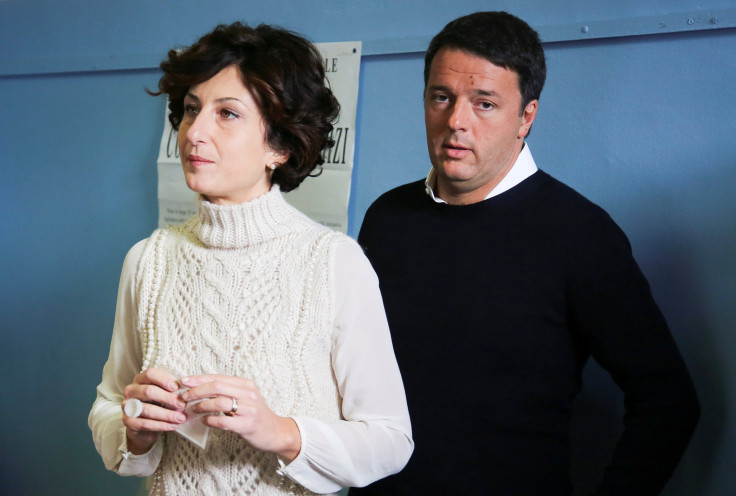Italian Referendum: Renzi Resigns As Voters Reject Constitutional Reforms

Italian voters Sunday rejected constitutional reforms in the latest populist backlash against the established. Prime Minister Matteo Renzi said he would submit his resignation Monday.
Exit polls and early returns indicated the referendum losing by a clear margin.
Nearly 60 percent of Italian voters took part in the referendum, which would have drastically reduced the role of the Italian Senate, as financial markets braced for renewed political instability and bank turmoil in the wake of a “No” vote. Italy’s opposition parties had lined up against the measure.
An emotional Renzi conceded the loss and accepted responsibility for the defeat.
"I lost even if i do so with a knot in my throat i am not a robot," he said in a midnight (6 p.m. EST) address to the nation.
The euro fell slightly as the first exit polls were released, down nearly a percentage point against the dollar’s Friday close.
The “No” vote did not come as a surprise. Polls indicated the referendum would lose, and bookmakers made “No” the odds-on favorite.
The 60 percent turnout was high for Italy. Renzi had been banking on a low turnout to prevail, Reuters reported.
Renzi, 41, came to power as a left-of-center outsider in 2014 and since has managed to deliver reforms and gain leverage in Europe, standing against anti-immigrant, right-wing and radical forces.
Italy’s politics never have been calm. The country has had 63 governments in 70 years and has Europe’s fourth largest economy, behind Germany, the United Kingdom and France.
The vote comes amid efforts by the anti-establishment Five Star Movement to break away from the eurozone. Stefano Stefanini, a diplomatic adviser to former Italian President Giorgio Napolitano, told the New York Times voter sentiment is growing for Italy to revert “to a willingness to go it alone as a nation-state.”
If early elections are called, the Five Star Movement, Italy’s largest opposition party, could gain power, opening the way for a referendum on the euro.
Italian voters are fed up with high unemployment overall (10 percent) and a staggering 38 percent rate among young people, Bloomberg reported. Gross domestic product is at a two-year low.
The referendum would have changed 47 of the Italian Constitution’s 139 articles. The document was drafted in the wake of Mussolini’s fascist regime and was designed to prevent the rise of another strongman. Critics complained the changes would have vested too much power in the executive.
Renzi compared Five Star leader Beppo Grillo, a comedian, to U.S. President-elect Donald Trump and said he believed fear was driving populist movements in the United States and Europe.
“Populism is always the offspring of fear, and in Italy the answer to fear is the courage to not be defensive, to not be like all the others,” he said during the summer.
Italian voters were targeted by a flood of fake news to their Facebook accounts. It was unclear whether the news was propaganda produced by opponents of the referendum or whether foreign powers were involved, the New York Times said.
© Copyright IBTimes 2025. All rights reserved.






















